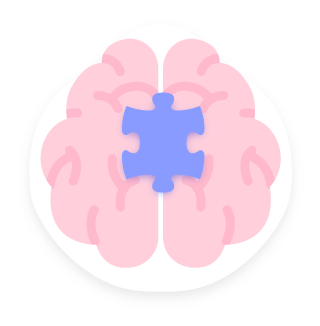GMAP Project ECHO®
Project ECHO is an expert-led, virtual training for small groups of pediatricians. GMAP Project ECHO offers pediatric mental health training in order to improve access to mental health care for children across Georgia. All GMAP Project ECHO cohorts offer free CME & CNE.
Registration for our current GMAP ECHO cohorts is now closed. Check back for updates!
2024 Project ECHO Cohorts

Managing Anxiety & Depression in the Pediatric Practice ECHO®
Topics Covered:
- Identification & Assessment of Anxiety & Depression
- Triage/Emergency Care/Suicidal Ideation
- Brief interventions – Anxiety
- Brief interventions – Depression
- Psychopharmacology
- Appropriate Referrals and Follow-Up
Essential Topics in Early Childhood Mental Health ECHO®
Topics Covered:
- The Science of Early Childhood Mental Health: What Pediatricians & Pediatric Nurses Need to Know
- Perinatal Mental Health: Identification & Intervention of Perinatal Mood & Anxiety Disorders
- The Role of Sleep in Promoting Mental Wellbeing
- Attachment Related Anxiety Issues in the Young Child
- Red Flags in Early Childhood Development
- Choosing the Right Evidence Based Therapy for the Very Young Child
Essential Pearls for Managing ADHD in Pediatric Settings ECHO®
Topics Covered:
- Screening
- School Accommodations
- Medication Management
- Sleep
- Non-Medication Management: Complimentary Treatment
- Clinical Conundrums

Virtual
Connect with colleagues
- 1 lunchtime per month
- Build local connections

Expert
Interdisciplinary local faculty team
- CME & CNE Credits
- Practice + family resources

Targeted
Frequently Asked Questions
What is case-based learning?
The ECHO model uses primarily case-based learning. Participants present de-identified cases from their own practice where there is a question of diagnosis or a question about management of symptoms. Participants and hub specialists discuss the cases, ask clarifying questions, and provide recommendations. You will receive a copy of the case presentation form to use as a guide when presenting. All participants are encouraged to present at least one case during the series.
What is the hub and spoke model?
The ECHO model breaks down the walls between specialty and primary care. It links expert specialist teams at an academic or hospital based “hub team” (specialists in the areas of child psychiatry, psychology, pharmacy and social work) with primary care clinicians in local communities – the “spokes” of the model. Together, all participate in regularly scheduled ECHO sessions combined with mentoring and patient case presentations.
How are sessions structured?
- Each session will provide a didactic by one of the ECHO Faculty members.
- Q&A
- A case presentation (submitted and presented by participant) is then followed by clarifying questions and recommendations from all ECHO participants.
- Final thoughts and questions wrap up each session.
How much does it cost to join?
ECHO is fully supported by the Chapter and is free for participants but require a commitment of actively engaging in the peer learning community by sharing case presentations and ideas with the group.
Can I earn CME/CEU credits?
GMAP ECHOs at the Chapter provides credit to participants who register and participate in the live sessions. 1 session = 1 AMA PRA Category 1 Credit.
What are the requirements of participation in Project ECHO?
We request participants attend regularly scheduled sessions, present (de-identified) patient cases, and complete post session evaluations. We also ask that they be actively visible on video while using required teleconferencing software, Zoom.
For more information about GMAP, please contact the Chapters Behavioral Health Coordinator, Hannah Smith, at hsmith@gaaap.org or (404)881-5089. You can also download our GMAP Brochure Here.
